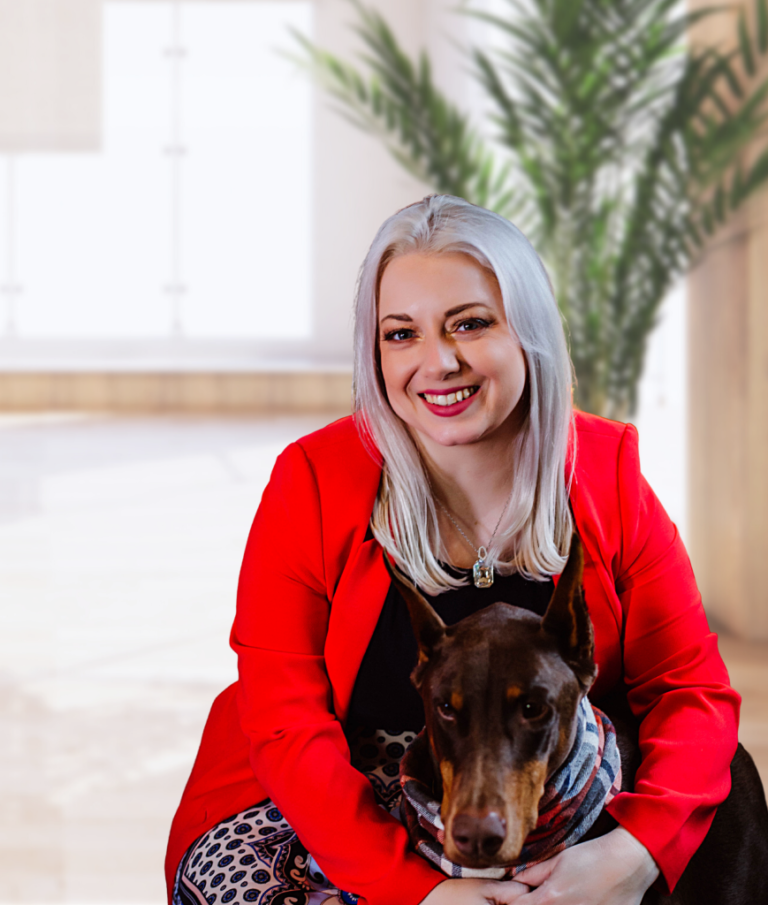Continuing my series, “Understanding Financing,” with this video on bond loans. What is a bond loan? And what bond loans are available to home buyers in the DC Metro Area? This video features my special guest, Ron Schwartz, Senior Loan Officer with Embrace Home Loans.
Hannah:
Hey everybody, I’m here today with Ron Schwartz of Embrace Home Loans. And we are here today because I met Ron working with a client on a construction loan. And that led to going to some of his lunch and learns. And his classes on bond loans were just so helpful. So I just thought we should invite him here today. And thanks for coming.
Ron:
That’s a real pleasure. It is a pleasure to be able to present these programs. I don’t think they get enough publicity. It’s an honor actually to lend within them. So let’s go ahead and talk about which ones are most interesting to you.
Hannah:
Definitely! Well let’s start with, what is a “Bond Loan”?
Ron:
It’s a good question. It’s sort of a lender’s term. For lack of any better term, in plain English, it is a term for: a loan that helps you with down payment and settlement costs, usually provided by a state or a local authority and it’s able to be applied to either the down payment or the closing costs or some of both when you purchase in your first home.
Hannah:
OK, great! And so let’s start talk about some of those various programs in our area. What about the Maryland Mortgage Program? That’s one we hear a lot about.
Ron:
That’s also probably about the biggest one in our area. Maryland Mortgage Program obviously is provided by the state of Maryland and has several options that go along with it. But the core of the program is a first mortgage loan through the Maryland Community Development Authority as well as a second loan, we call a DSAL, which is a down payment and settlement cost assistance loan program of about $5,000. And it’s available for use anywhere in the state of Maryland. There are income restrictions for the most part, but there are also some areas in the state where there are no income restrictions. You have to talk to a qualified lender like myself to find out where in the map that falls. That’s the basis. There are some other add-ons however. I think you’d mentioned…
Hannah:
House Keys 4 Employees…
Ron:
House Keys 4 Employees is a great example of an add-on to the program where an employer can actually match or be matched by the state. For example, I know one of the participants is Under Armour. An employee at Under Armour can participate in the program that will get the $5000 DSAL loan. If Under Armour perhaps provides $2500 as an incentive to that employee, the state will actually match another $2500 up to a total, or maximum, of $2500. So in that case, that employee of Under Armour will be eligible for $10,000 in down payment settlement cost assistance to use on their loan.
Hannah:
Another popular loan program in our area is DC Open Doors. Can you tell people about it?
Ron:
It’s incredible actually. It’s to me the most progressive thing I’ve ever seen come out of D.C. in my market. Coincidentally we’re here in my D.C. office at Farragut North; it’s a good place to talk about DC Open Doors. DC Open Doors is a 3% or 3.5% down payment assistance program with a first mortgage from the DC Housing Finance Authority. It is extremely progressive in that, after the fifth year of home ownership, these second liens for down payment and settlement costs are actually forgiven on a pro-rata basis. So somebody buys a $300,000 first home. $9,000 of the DC Open Doors money is given to them at settlement. That’s placed on the home as a second lien; it’s actually a loan with no interest and no payments. And by the fifth year it’s fully forgiven. It’s their money.
It’s one of the most progressive loan programs I’ve seen and it’s leading a bunch of other organizations in the area to do a little bit more than what used to be done. There are several other really neat features about DC. Where it’s progressive on the forgiveness, it’s even more progressive in that, most of the home loan programs in the DC area are based on household income to qualify. Wherein the DC program, the borrower themselves is the person who qualifies. Somewhere around $130,000 or less and the borrower who qualifies for the loan is eligible. So you may have two borrowers. Maybe one has $100,000 and another has a $130,000. As long as one of them qualifies, then the loan program works.
Hannah:
And do only first-time homebuyers count for DC Open Doors?
Ron:
Good question. Another very progressive thing about Washington DC’s program is that you do not have to be a first-time homebuyer to qualify for DC Open Doors. However, you will have to be in a position to only own that home that you’re purchasing at settlement and beyond. So if you have a home today and you’re in Boston and you’re selling that one to move here, that’s totally fine. You don’t have to be a first-time homebuyer. Even if you’re moving down or up in the city, as long as the home you live in today and own, is sold immediately prior to your new home, you are good to go with the DC Open Doors program.
Hannah:
What if we want to leave the District and head out to Montgomery County – what are some of the programs that are available in Montgomery County?
Ron:
There are quite a few available in Montgomery County. The most notable is the Montgomery County Housing Opportunities Commission offers a first mortgage loan program and two second mortgage loan programs that can be combined. So we have a 3% down payment assistance program and we have this unique program called the Five for Five Revolving Closing Cost Program. You put them together and a homeowner could have as much as $15,000, or maybe in some cases $17,000, to add into their mix for use as down payment and settlement cost assistance.
Hannah:
I have heard the City of Gaithersburg also has a similar down payment assistance program.
Ron:
It does, in fact. Really interesting, they’ve just come out with a program based on the map location of that subject properties, City of Gaithersburg will offer someone who qualifies as a first-time homebuyer in the city of Gaithersburg up to $25,000, some areas $12,000. It’s based on the census track, which is a mapping system that I can look up a property on as a qualified lender in the program. But that loan can be combined with anyone’s first mortgage loan program, as long as the lender, like myself, is qualified to lend in the program. I happen to live in the city of Gaithersburg so I am particularly proud of the work we do there and it’s extremely progressive and $25,000 can make a tremendous difference for a first-time homebuyer, particularly a lot of folks who aren’t really prepared to take on not only the mortgage, but also all the surprise expenses that come up. So we like to see them use that program to also ease off and put a little more money into savings as they purchase their first home.
Hannah:
The City of Gaithersburg isn’t the only city that has its own program.
Ron:
That’s right. City of Rockville has had a program that can be combined with HOC and some others and Maryland mortgage program, they’ve had that for a long time. But most progressive, shocker, Takoma Park! My heroes. Just come up with their program as well. It’s available to first-time homebuyers in Takoma Park. You know these incentives are there to help folks choose to purchase homes in these jurisdictions. I think it’s just a great idea.
For example, I do sit with a lot of interested parties at Gaithersburg to talk about these programs as a way to stabilize our tax base, help families and incentivize them to buy in the city and move up. Properties will become available because those folks that buy their first home are likely going to buy a larger home and the larger homeowners are going to go to their next home as well. So we find these to be really aggressive.
Now still further up we have a great program in Frederick County as well that I can tell you more about another time. But know this, wherever you are in the state of Maryland, there is some down payment assistance money to assist you. There is even more opportunity for veterans, and certain jurisdictions have no income restrictions for some of these home loan programs. So for example, Brunswick, Maryland is an up and coming place, where we have no income restrictions and you can buy a property there and use these programs, even on your second home.
Hannah:
So what if we want to leave Montgomery County. Let’s head to PG County. What are some of the programs there? Because I know you just took a class…
Ron:
I was just in the class for the new program in PG County, which we call the Pathway to Purchase Program. It’s unlike the prior program, which was called the My Home II Program. The Pathway to Purchase Program replaces it. My Home II ended December 31, 2016. And then starting the 9th of January, 2017, the Pathways to Purchase Program is a $10,000 forgivable pro-rata forgiveness for 10 years on $10,000 for qualified households. So we have to remember there are income restrictions that apply to these different program, but they can make a tremendous difference in the opportunity to move from being a renter into your first home. PG County used to only limit their program to certain zip codes or jurisdictions. And the Pathway to Purchase applies to the entire county. And it can be combined with, for example, the Maryland Mortgage Program.
So we can do a lot of things that really make a big difference. Folks might be sort of waiting on the sidelines. “Oh I just can’t seem to get that down payment put together.” They need to talk you Hannah and see where we can get them into one of these programs.
Hannah:
And I also heard that there is a certificate that you can get that will help you with decreasing your income tax on the property that you have.
Ron:
Hannah, you’ve done it again. You’ve really done your homework. In Maryland and the District of Columbia, there is a Mortgage Credit Certificate program. Unlike the tax-deductible nature of more pay mortgage interest as a home owner, which is something that our folks always told us, “oh we get a little tax deduction.” The Mortgage Credit Certificate is actually a program where you buy the certificate from the jurisdiction and then for the rest of the time you’re in that home, there’s a dollar for dollar reduction in your tax payment for each year. It makes a tremendous impact on first-time homebuyers in particular. It’s usually only available to folks that are eligible for these other programs; however, you can also get the Mortgage Credit Certificates independently. So you don’t have to be a borrower in the home loan program to get the Mortgage Credit Certificate. Usually a first-time homebuyer will qualify.
Hannah:
So now that we’ve talked about some of the programs that are available, can you give us some context in trying to understand, when should you move forward with a loan program that is more conventional versus some of these bond loans programs that we have been talking about today?
Ron:
We talk a lot about different terms, like “bond loan” and “conventional versus government” or FHA or, for folks that have served our country (Thank you!), we have the VA loan program. The most important thing to do is to sit down with a qualified professional, take a deep breath, and complete an application, so that the person you’re working with, like myself or one of my colleagues, can take a look at your individual situation. Only by doing that, can we determine which of these best suits your needs. Where many folks will wait until three or four years where they could have purchased a home using one of these assistance programs (and some families need some time to get their credit online or do other things), the main thing is to jump in the pool today and start treading water with the rest of us because until you take that first step, we don’t know what you qualify for. So just about anyone with decent credit should qualify for some of these programs as a first-time homebuyer, in particular.
Hannah:
And does this process take any longer to do in terms of when you are going through that initial pre-approval process before you actually get under contract?
Ron:
There’s an important difference between the pre-approval process and the contract-to-funding process. So the pre-approval is not any different. We find the pre-approval process/my process allows us to disclose the loan package, we take in the full loan file, then we actually approve a loan before borrowers go out and look at a house. That process is the same whether you’re buying your fifth home or whether you’re buying your first home. But what program you choose, if you should choose a “bond loan” program, like we have talked about here today, may require you to take little a more time in that second phase, which is the contract-to-funding phase. For example, we like to say that the PG County program, they’re going to require 21 days in addition to my standard loan process. That’s what they have trained me on just last week. So Maryland Mortgage Program, same thing takes a little bit longer. We’re not going to be able to comfortably close a 30-day contract on a program that requires some additional timeline for the use of the “bond loan”.
Hannah:
OK great. Well I hope that this is been helpful to you. And thank you so much for coming and clarifying it.
Ron:
Thanks for having me.
Hannah:
Yeah, I appreciate it. So I hope that this was helpful in understanding some of the programs that are available in the DC area, both inside the District and out in Montgomery County and PG, and all of Maryland, actually. There are quite a few programs available and more than we have talked about today. So if you’re interested, you definitely need to talk to a lender early in the process so that you can see whether or not you’re good candidate for any of these loans. Alright! Well thanks so much again.
Ron:
Great to see you. Thanks for coming in.



